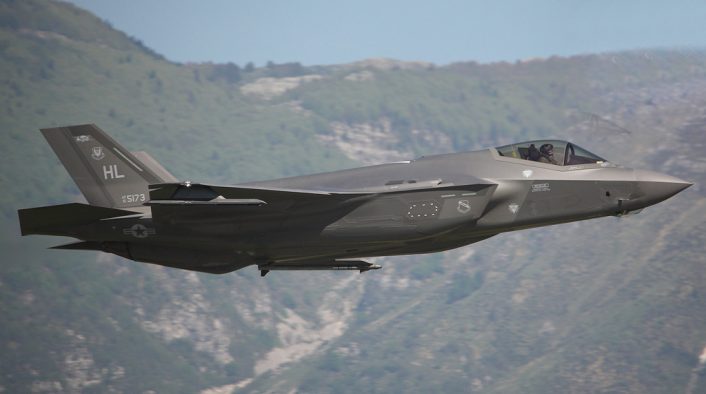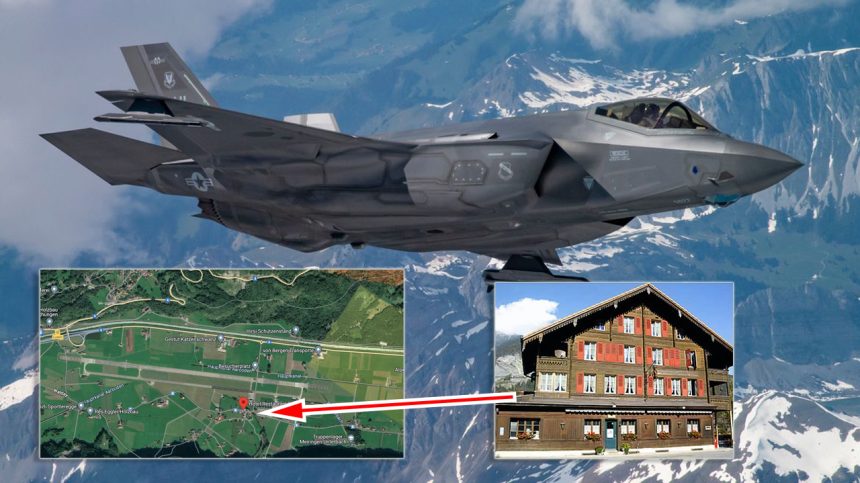A century-old hotel in Unterbach, Switzerland, has become the focus of American intelligence due to its proximity to Meiringen airfield, where the Swiss Air Force plans to base its F-35A fighter jets.
Hotel Rössli, a century-old log cabin in the Alpine village of Unterbach, offers breathtaking views of snow-capped mountains and a nearby waterfall. However, it’s the view from the back of the hotel that has caught the attention of American intelligence. Located just 100 meters from the hotel’s back, the Meiringen airfield will soon host the F-35s of the Swiss Air Force.
Meiringen is a quite famous airport for aviation enthusiasts: located at an elevation of 570 meters between the Alps of the Bernese Oberland, the base is nearly invisibile to the people that visit it for the first time. If it were not for the futuristic control tower and for some helicopters parked in the large apron aside the main runway, it would be rather difficult to even notice its presence.
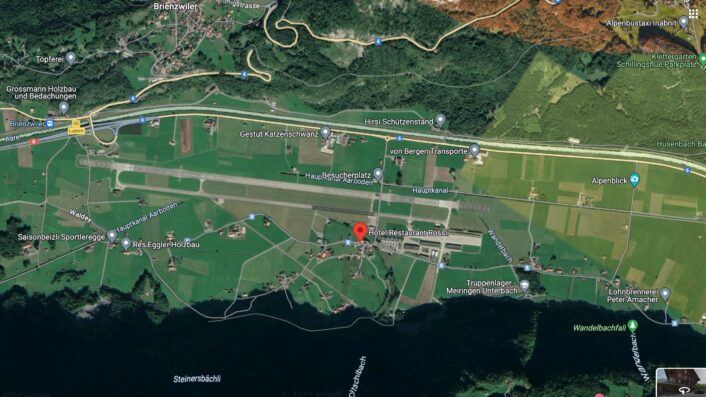
The airport is surrounded by fences that are usually “symbolic”, sometimes almost absent, and from a system of level crossings activated during flight operations to prevent runway or taxiways incursions. Indeed, the local roads cross the field from North to South and from East to the West: a couple of lights regulate the crossing of the runway that is granted until a few moments before the take off of any aircraft. The base is a sort of large “open space”, with the locally based aircraft located inside the mountain shelters and maintenance hangars located in modern buildings along the main strip.
You can freely walk close to the runway threshold and taxiway and take as many photographs as you want.
In short, the airbase is the paradise of aviation spotters slated to become a nightmare to the U.S. intelligence.
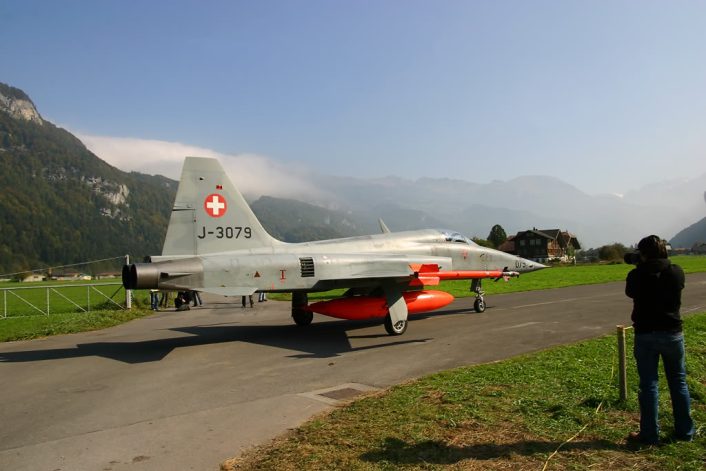
The espionage saga
According to a Wall Street Journal report, Hotel Rössli, owned by the Chinese Wang family since 2018, was raided by Swiss federal police last year. U.S. and British national security officials argued that the hotel’s picturesque facade offered Beijing’s intelligence services a prime location to gather information on the F-35s.
It’s not a secret that China’s intelligence agencies as well as Russian ones are keen to acquire data on the 5th generation aircraft, what’s not clear is whether Hotel Rössli was bought to provide a privileged spying post to Beijing.
As Swiss interest in the F-35 grew, U.S. intelligence officials and diplomats in Switzerland repeatedly warned that Chinese intelligence agents, operating under diplomatic cover in Geneva, were trying to gather information on the jets. The ambassador learned that the Swiss were not taking these warnings seriously: the Swiss Federal Intelligence Service had only about five staff focused on China, noted Ralph Weber, a China expert at the University of Basel who speaks Mandarin. “Swiss-Chinese policy is essentially aimed at not provoking China,” he added.
Ultimately, in 2022, Switzerland committed to spending 6 billion Swiss francs (6.18 billion Euro), on the F-35s, expected to arrive in 2028, marking the largest military investment in the country’s history. However, U.S. officials felt the Swiss were not adequately addressing security around the airfield.
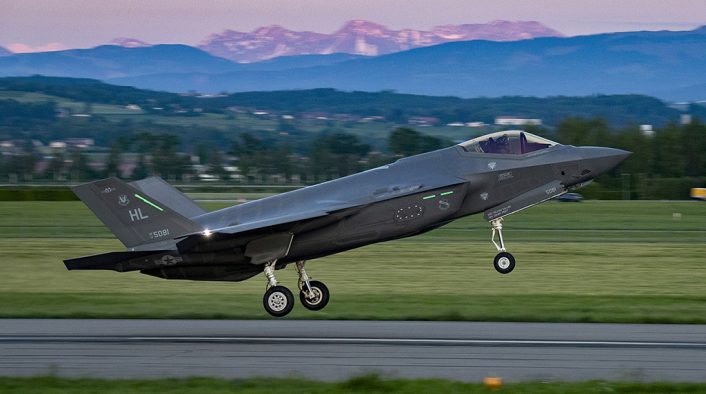
The Wangs denied using the hotel for espionage, claiming it was simply a retreat for visitors but the there were several reasons for the Western intelligence agencies to be concerned: the Wang family was unfamiliar with Swiss culinary customs and the high cost of local labor, frequently returned to China, including during peak holiday seasons. The hotel’s decline and the arrival of new workers from China, some without residence permits, further fueled suspicions.
The Wang family’s background also raised some questions with Wang Jin claimed to have grown up in Germany and Switzerland as a diplomat’s son.
U.S. officials argued that under China’s 2017 national security law, the Wangs would be compelled to assist in gathering intelligence if asked by Beijing.
No evidence
Despite U.S. concerns, Swiss intelligence officials found no concrete evidence of espionage: after a police raid and fines for minor violations, the Wangs returned to China, leaving the hotel for sale. Many locals viewed the situation as an overreaction. Former owner Kaspar Kohler doubted the effectiveness of such an espionage method.
A Swiss family had attempted to buy it but couldn’t secure a loan, according to Simon Zumbrunn, a local egg farmer on the Unterbach Aerodrome Commission. He believes the Chinese family is innocent.
Last year, an online ad listed the hotel for sale for $1.8 million. In January, the Unterbach Airfield Commission learned that a buyer had been found: the Swiss Army. The terms of the purchase were not disclosed.
